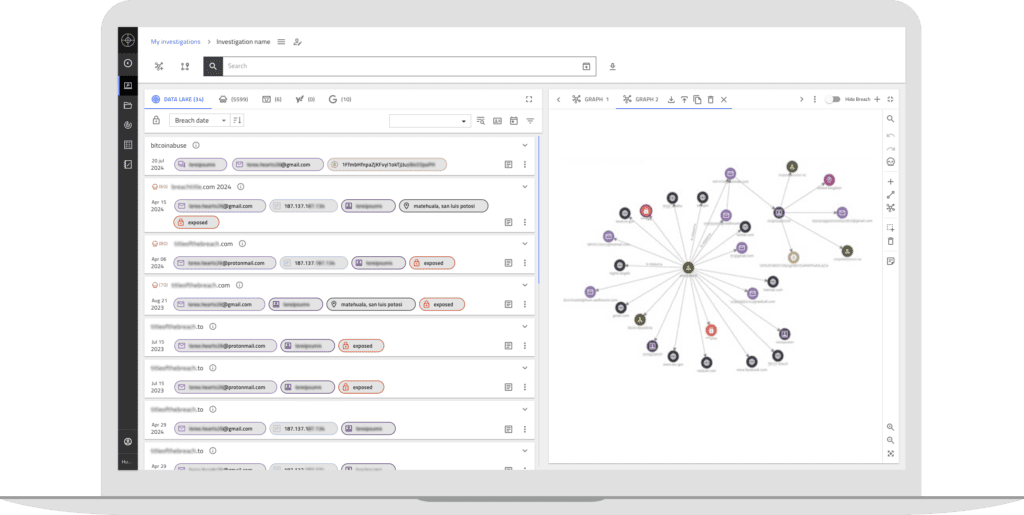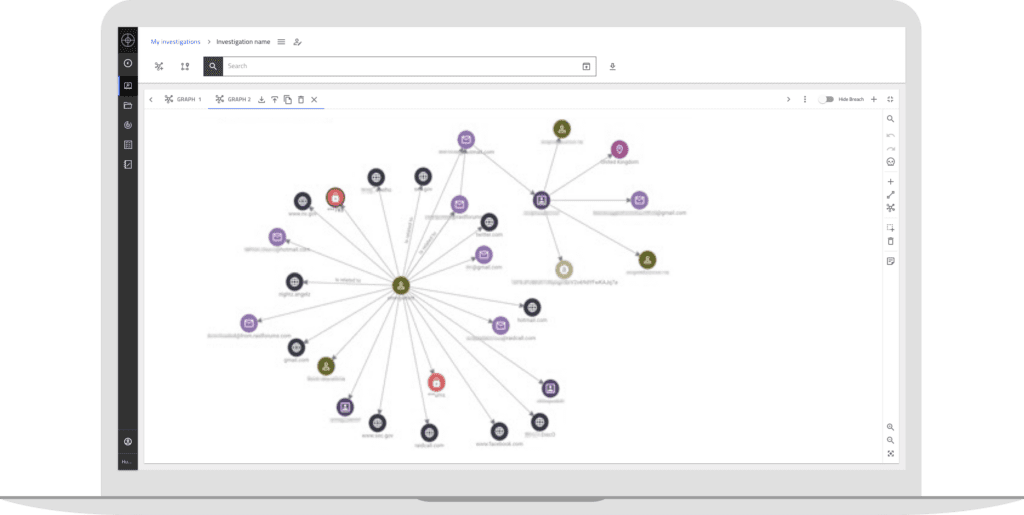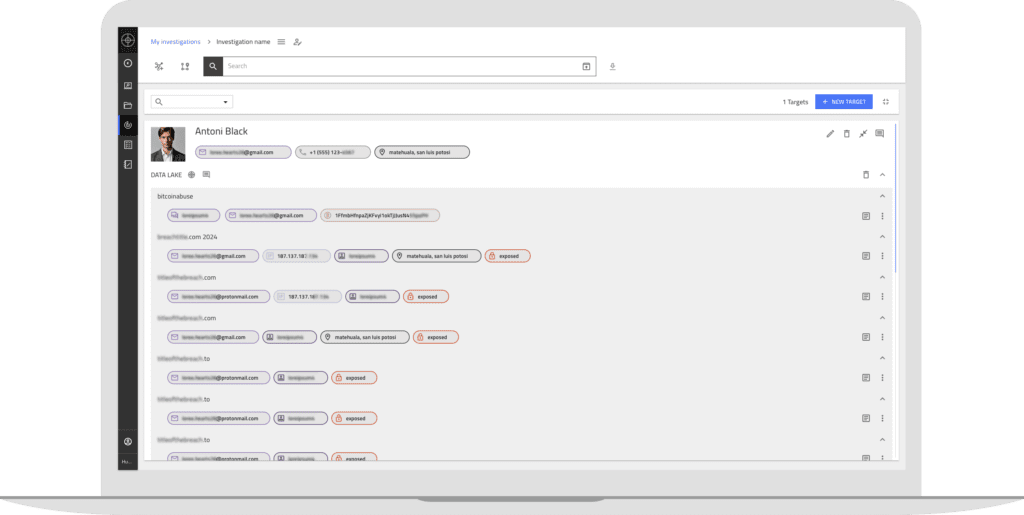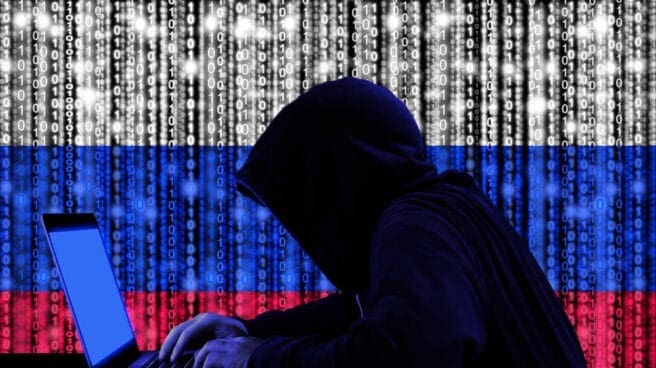Cyber Investigations FAQ
Answers to a few of the questions you may have about Cyber Investigations.
What does cyber investigation software do?
An effective cyber investigations software provides a platform for analysts that allows them to view multiple sources of data in one place, visualize the data in a meaningful way, and combine this data with other information in order to save time and effort.
Does your company need cyber investigation services?
Your brand faces a seemingly endless array of threats: Malicious domains, impersonation profiles, counterfeit products, exposed intellectual property, and even disgruntled insiders.
An effective Brand Protection Software gives you the critical visibility you need to respond quickly and effectively to threats and take down fraudulent, harmful or malicious content before it can impact your relationship with your customers.
Your Brand Protection solution should provide:
- ML-Powered Detection of Malicious Domains
- Breach Intelligence
- Insider Risk Detection
- Social Media Impersonation Algorithms
- Phishing Campaign Detection
- Customizable Threat Models
- Investigations & Attribution of Anonymous Threat Actors
- Automated Takedown Requests
- Alerts to cyber threats that have evolved into physical threats to your operations and employees
Why do you need brand protection services?
Brands must take a comprehensive approach to protect your relationship with customers in today’s diverse threat landscape. Most organizations do not have the resources or skillsets to continuously scan your brand’s digital presence. To wit:
- Siloed data and teams are using isolated technology that doesn’t present a unified view
- The tools used are not purpose-built for security functions and there is a heavy reliance on manual, ad-hoc monitoring
- There is not enough staff who are trained to quickly detect and respond threats
Automated monitoring frees up your team from having to devote hours every day manually collecting and analyzing OSINT data. Instead, they can focus on mitigating threats targeting your brand and your customers.
What is the difference between misinformation and disinformation?
Both terms represent false information that is spread by individuals or groups.
- Misinformation describes the general spread of false information, whether or not the person knew the information was false.
- Disinformation is false or inaccurate information that is deliberately framed to be deceptive to those who consume it.
Regardless of the intent, the effect on your brand can be significant. Brand Protection gives you early warning of conversations on Social Media and the Surface, Deep, and Dark Web so you can get in front of fake news and malicious campaigns.
Read our blog: The 5 Dangers of Misinformation & How Disinformation Campaigns are Related





